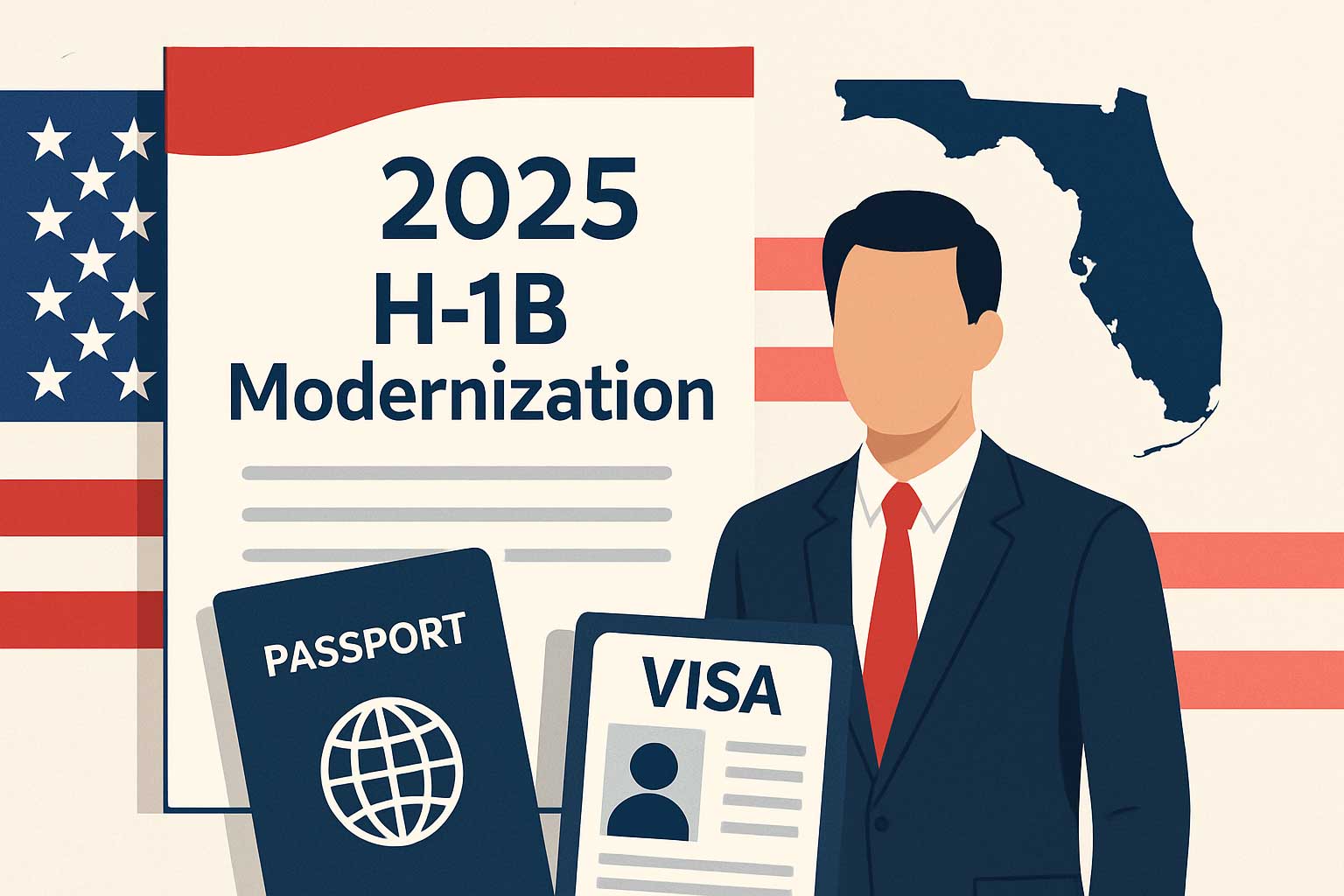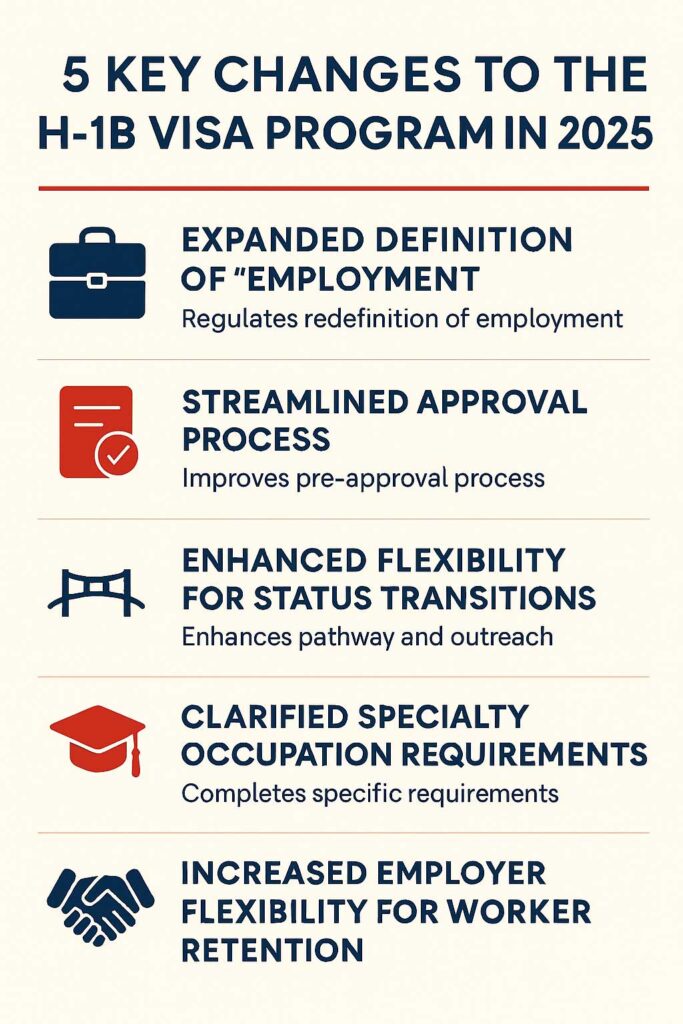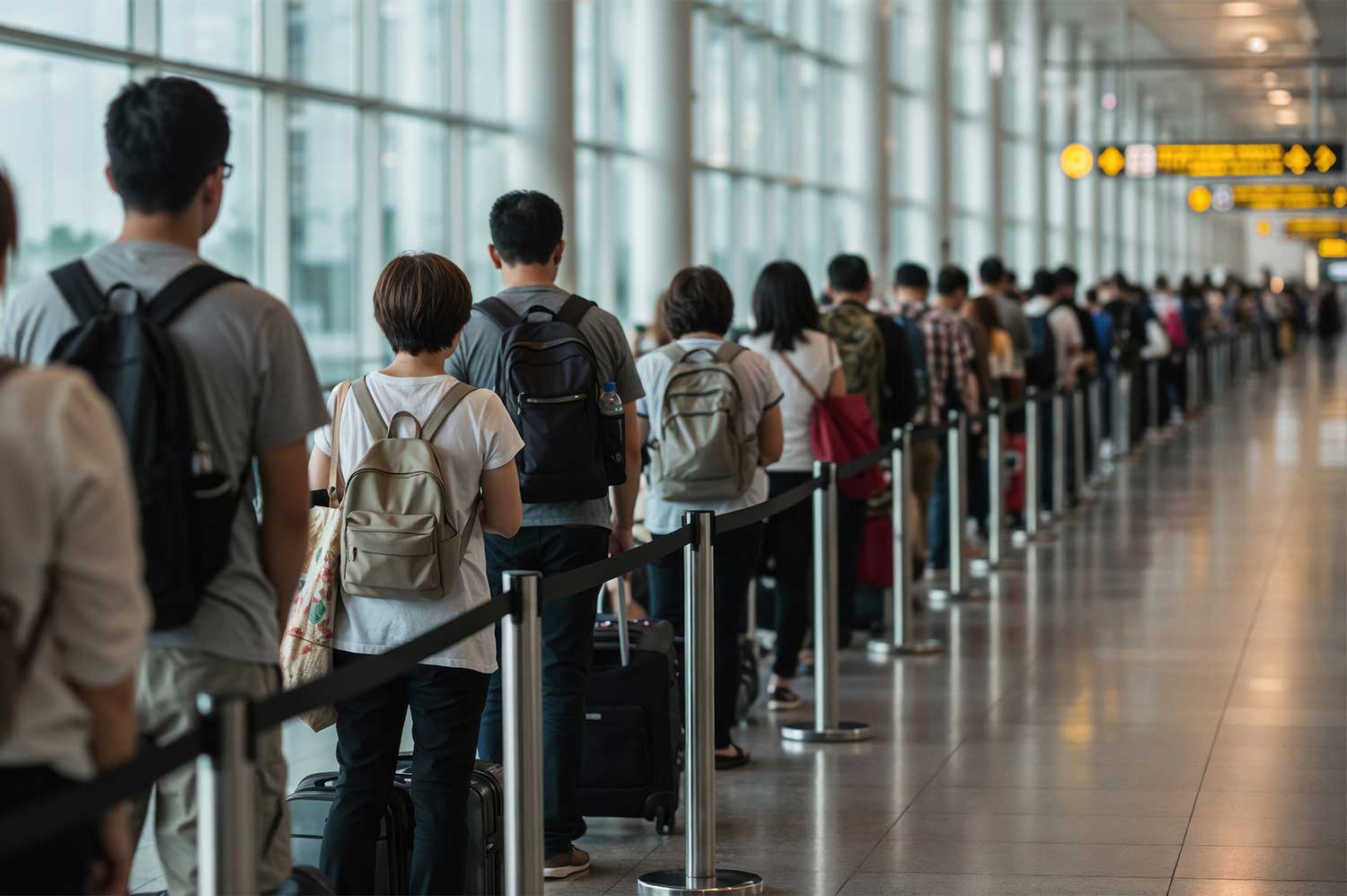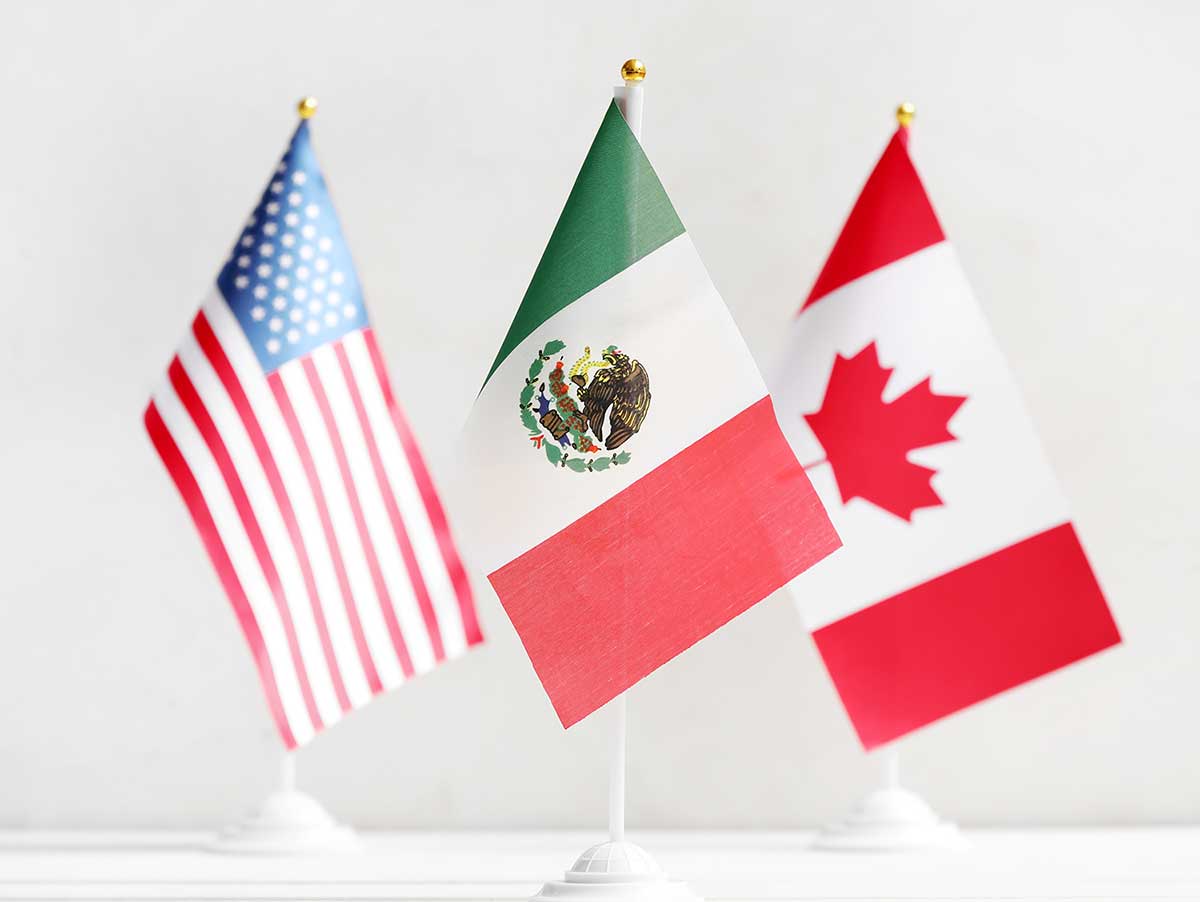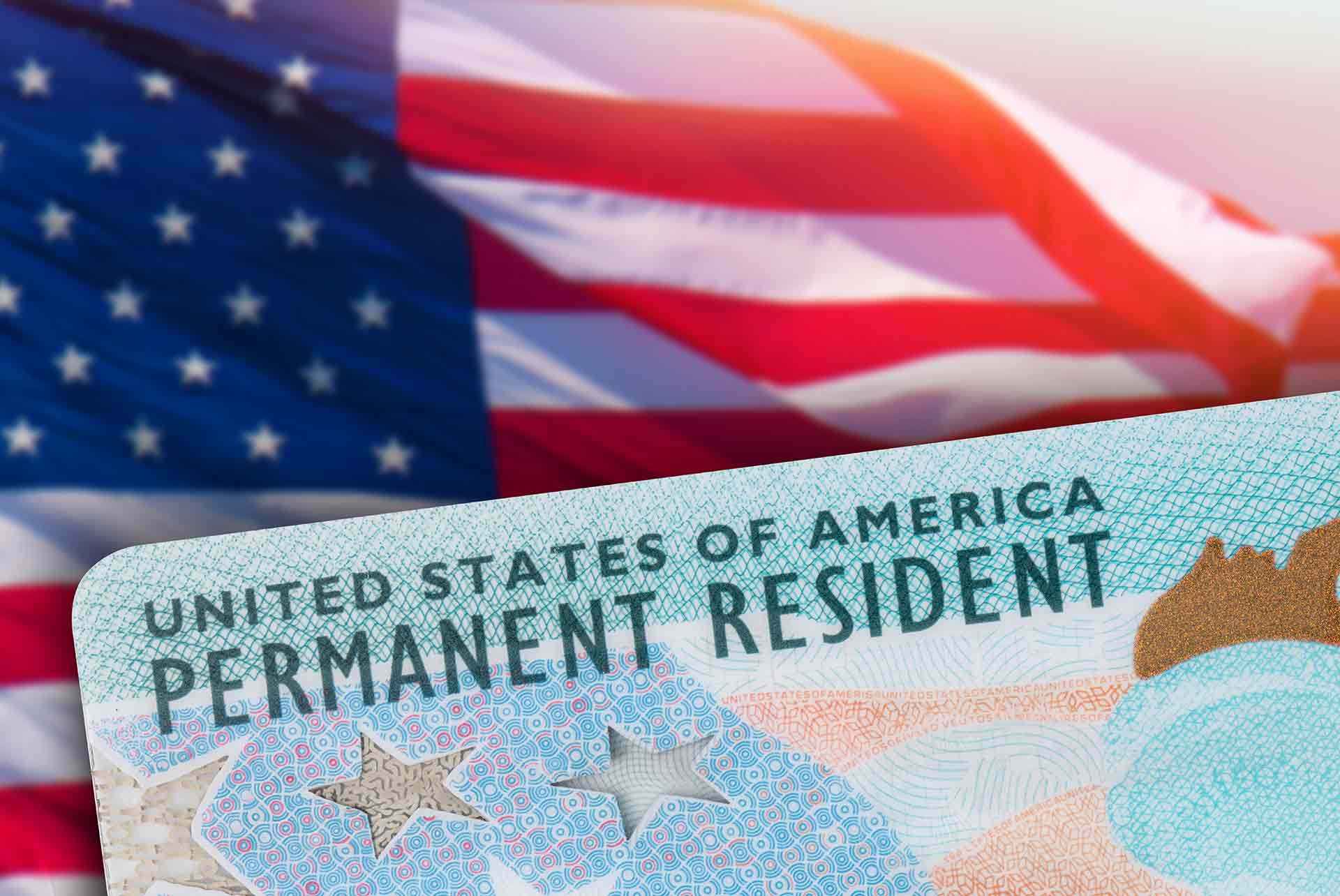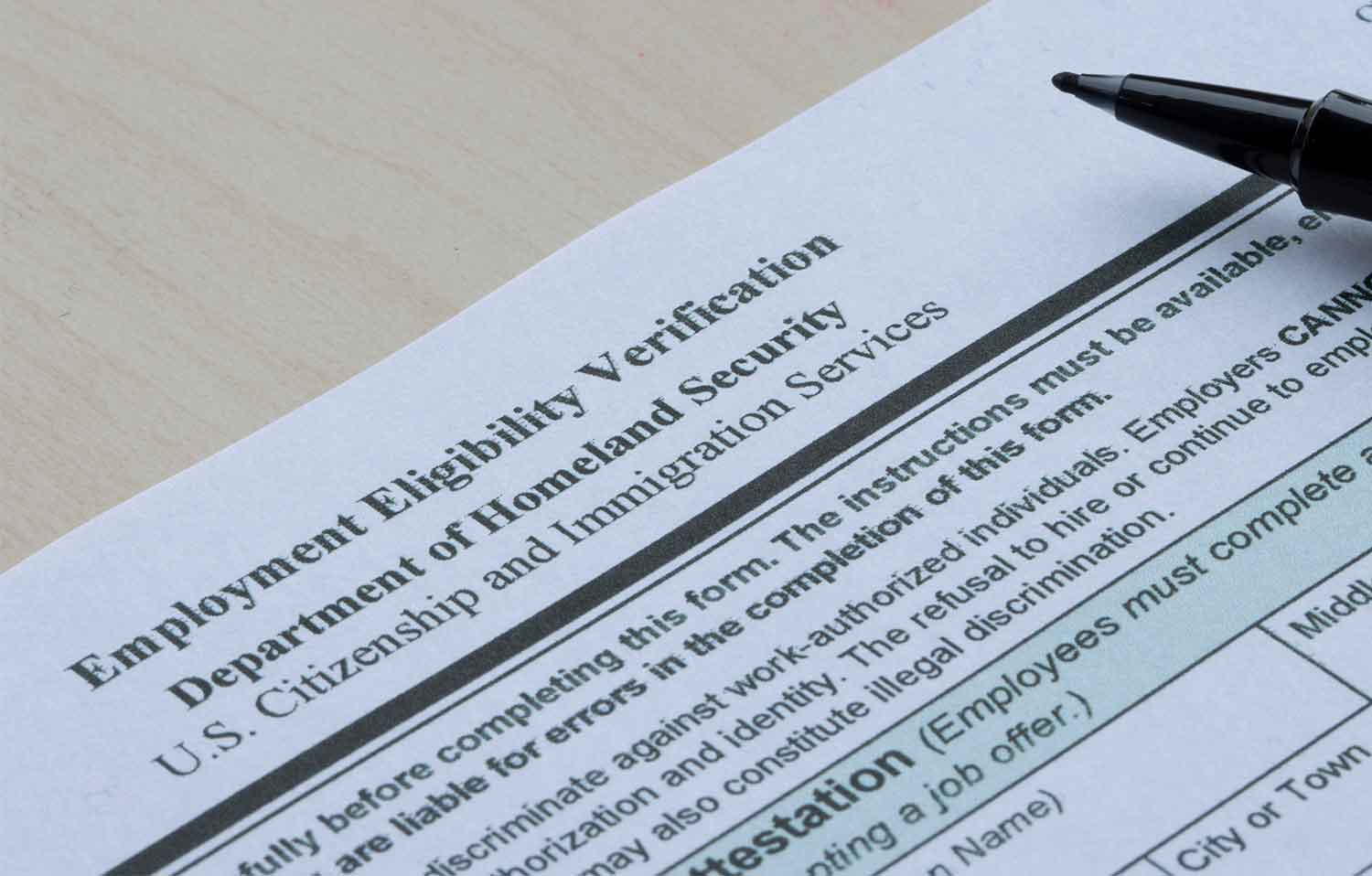H-1B Visa Introduction
The H-1B visa program has long been a critical pathway for U.S. employers to recruit and retain highly skilled foreign professionals in specialty occupations. As of January 17, 2025, significant changes to the H-1B program have taken effect through the Department of Homeland Security’s H-1B Modernization Rule. These updates aim to streamline the approval process, increase flexibility for employers, and provide greater stability for foreign workers.
For Florida businesses and foreign nationals seeking employment opportunities in the United States, understanding these changes is essential for successful immigration planning. This comprehensive guide breaks down the key modifications to the H-1B program and explains how they might affect your immigration journey.
Key Changes in the 2025 H-1B Modernization Rule
1. Expanded Definition of “Employment”
One of the most significant changes in the new rule is the expanded definition of “employment” for H-1B purposes. Previously, the program primarily focused on traditional employer-employee relationships, creating challenges for entrepreneurs, startup founders, and business owners.
The modernized rule now explicitly includes:
- Entrepreneurs and startup founders
- Self-employed professionals
- Business owners who work for their own companies
This change opens new pathways for foreign entrepreneurs to establish businesses in the United States while maintaining legal immigration status, potentially boosting Florida’s growing tech and innovation sectors.
2. Streamlined Approval Process
The H-1B Modernization Rule introduces several measures to simplify and expedite the approval process:
- Reduced documentation requirements for certain categories of applicants
- Simplified extension procedures for workers remaining in the same position with the same employer
- Expedited processing options for specific cases meeting urgent business needs
These improvements aim to reduce administrative burdens on both employers and USCIS, potentially leading to faster processing times and more predictable outcomes.
3. Enhanced Flexibility for Status Transitions
The rule extends significant flexibility for F-1 student visa holders seeking to transition to H-1B status. Key provisions include:
- Cap-gap extension improvements that help bridge potential gaps between F-1 OPT expiration and H-1B start dates
- Automatic extension of work authorization in certain circumstances
- Provisions to avoid disruptions in lawful status and employment authorization during the transition period
For international students graduating from Florida universities, these changes provide greater security and continuity as they transition from academic to professional roles.
4. Clarified Specialty Occupation Requirements
The modernization rule clarifies the definition of “specialty occupation” and the educational requirements for H-1B eligibility:
- Refined degree relevance standards requiring that an educational degree must be directly relevant to the specific job role
- Alternative credential pathways recognizing equivalent experience in certain circumstances
- Clearer guidelines for determining whether a position qualifies as a specialty occupation
These clarifications help employers better understand which positions and candidates qualify for H-1B sponsorship, potentially reducing the risk of petition denials.
5. Increased Employer Flexibility for Worker Retention
The new rule provides employers with greater flexibility to retain talented H-1B workers:
- Simplified job change procedures within the same organization
- Reduced barriers for H-1B workers changing employers
- Extended grace periods for workers between jobs
These provisions benefit both Florida employers seeking to retain valuable talent and H-1B workers looking for career growth opportunities within the state.
Impact on Florida Employers
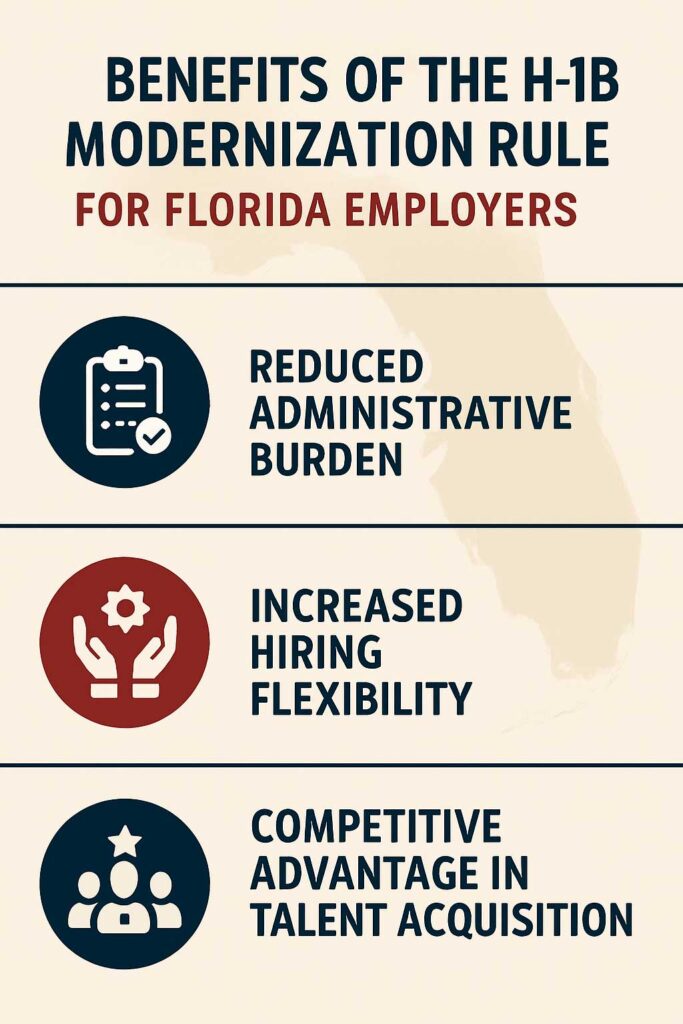
For Florida businesses, particularly those in technology, healthcare, finance, and education sectors, the H-1B Modernization Rule offers several advantages:
Reduced Administrative Burden
The streamlined processes and clarified requirements reduce paperwork and administrative overhead, making it easier for Florida employers to navigate the H-1B program. This is especially beneficial for:
- Small and medium-sized businesses with limited HR resources
- Startups and emerging companies seeking specialized talent
- Established organizations with ongoing foreign talent needs
Increased Hiring Flexibility
The modernized rule provides Florida employers with:
- Greater certainty in the H-1B application process
- Improved ability to retain foreign workers through simplified extension and amendment procedures
- Enhanced options for accommodating internal transfers and promotions
Competitive Advantage in Talent Acquisition
With clearer pathways for entrepreneurs and specialized professionals, Florida businesses can:
- Attract international talent more effectively
- Compete more successfully with companies in traditional tech hubs
- Build diverse teams with global perspectives and expertise
Benefits for Foreign Workers
For foreign nationals considering employment opportunities in Florida, the H-1B Modernization Rule offers several important benefits:
Improved Job Mobility
The new rule enhances job mobility through:
- Simplified employer change procedures
- Extended grace periods between employment
- Clearer guidelines for maintaining status during transitions
Entrepreneurship Opportunities
The expanded employment definition creates new possibilities for:
- Starting businesses while maintaining H-1B status
- Transitioning from employee to entrepreneur
- Developing innovative ventures in Florida’s growing business ecosystem
Greater Stability and Predictability
Foreign workers benefit from:
- Clearer guidelines for maintaining status
- Simplified extension procedures
- Reduced uncertainty during status transitions
How to Navigate the New H-1B Process
For Employers
If you’re a Florida employer looking to hire foreign talent under the new H-1B rules:
- Assess position eligibility under the clarified specialty occupation guidelines
- Review educational requirements to ensure they align with the position
- Prepare comprehensive documentation that clearly demonstrates the position’s qualification as a specialty occupation
- Consider timing strategies for H-1B lottery registration and petition filing
- Develop retention strategies that leverage the new flexibility provisions
For Foreign Workers
If you’re a foreign national seeking H-1B opportunities in Florida:
- Evaluate your qualifications under the clarified specialty occupation standards
- Understand the direct relevance of your degree to potential positions
- Explore entrepreneurship options if you’re interested in starting a business
- Plan carefully for status transitions from F-1 or other visa categories
- Consider long-term immigration strategies that align with your career goals
Potential Challenges and Considerations
While the H-1B Modernization Rule introduces many positive changes, certain challenges remain:
Annual Cap Limitations
The H-1B program still maintains its annual numerical limitations:
- 65,000 regular cap visas
- 20,000 additional visas for holders of U.S. master’s degrees or higher
For FY 2026, USCIS reported 343,981 eligible registrations, a 26.9% reduction from FY 2025 (470,342), but competition remains significant.
Evolving Interpretations
As with any new immigration regulation:
- USCIS interpretations may evolve over time
- Adjudication standards might vary between service centers
- Policy guidance may be updated as implementation progresses
Potential for Future Changes
Immigration policies remain subject to:
- Administrative priorities
- Legislative developments
- Court challenges and judicial interpretations
Conclusion
The 2025 H-1B Modernization Rule represents a significant evolution in U.S. employment-based immigration. For Florida employers and foreign workers, these changes offer new opportunities, greater flexibility, and improved predictability in the immigration process.
Navigating these changes effectively requires careful planning, thorough preparation, and expert guidance. By understanding the key provisions of the modernized H-1B program, employers and foreign nationals can make informed decisions that align with their business needs and career aspirations.
Whether you’re a Florida employer seeking specialized talent or a foreign professional looking for opportunities in the United States, the H-1B Modernization Rule opens new pathways for achieving your goals in today’s dynamic immigration landscape.
How Purdy Law LLC Can Help

At Purdy Law LLC, we specialize in helping Florida employers and foreign nationals navigate the complexities of employment-based immigration, including the H-1B visa program. Our experienced team stays current with the latest regulatory changes and can provide personalized guidance tailored to your specific situation.
From initial eligibility assessment to petition preparation and post-approval compliance, we offer comprehensive support throughout the H-1B process. Schedule a Online Consultation Today to schedule a consultation and learn how the 2025 H-1B Modernization Rule might affect your immigration journey.
Want to simplify the process further? Partner with experts like Purdy Law LLC to ensure your application is error-free and expertly managed.
References
- U.S. Citizenship and Immigration Services. (2025, January 15). H-1B Final Rule, H-2 Final Rule, and Revised Form I-129 Effective Jan. 17, 2025. https://www.uscis.gov/newsroom/alerts/h-1b-final-rule-h-2-final-rule-and-revised-form-i-129-effective-jan-17-2025
- Department of Homeland Security. (2024, December 17). DHS Strengthens H-1B Program, Allowing U.S. Employers to More Quickly Fill Critical Jobs. https://www.dhs.gov/archive/news/2024/12/17/dhs-strengthens-h-1b-program-allowing-us-employers-more-quickly-fill-critical-jobs
- U.S. Citizenship and Immigration Services. (2025, May 15). H-1B Electronic Registration Process. https://www.uscis.gov/working-in-the-united-states/temporary-workers/h-1b-specialty-occupations/h-1b-electronic-registration-process
- American Immigration Council. (2025, January 3). The H-1B Visa Program and Its Impact on the U.S. Economy. https://www.americanimmigrationcouncil.org/research/h1b-visa-program-fact-sheet
